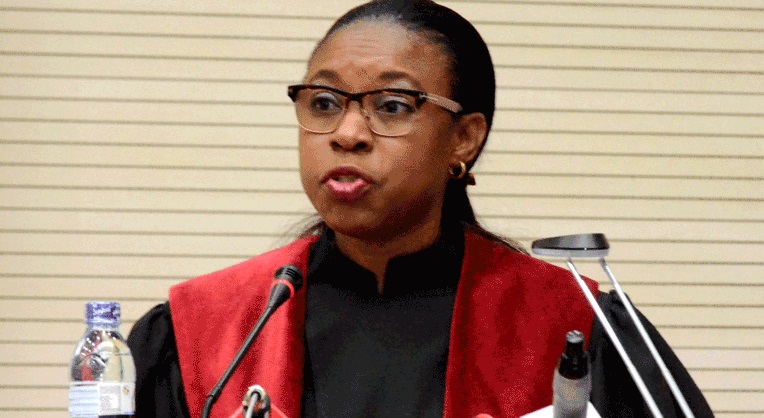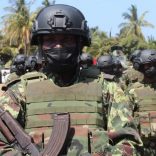Mozambique: ‘Já Chega’ initiative launches in Nampula province as over 24,000 acute ...
Justice: Assets of criminals must be seized – Mozambique

Photo: Notícias
Mozambique’s Attorney-General Beatriz Buchili on Monday declared that, when dealing with economic and financial crimes, it is not enough simply to punish the offenders – their assets, resulting from criminal activity, must also be seized.
Addressing the opening session of a meeting of the Coordinating Council of the Public Prosecutor’s Office, Buchili said that although there is as yet no specific law on the seizure of assets, courts could resort to other mechanisms to prevent criminals from enjoying the proceeds of their crimes.
ALSO READ: Anti-Corruption Office in Mozambique urges parliament to approve new law to recover assets
A law on the recovery of stolen assets is being drafted, but has not yet been approved by the Mozambican parliament. “In the meantime we must resort to other mechanisms, even if they are not very effective, always from the perspective of stripping from the criminals goods resulting from their crimes, and of compensating the State and society for the losses suffered”, said Buchili.
“We have to avoid situations in which we witness vehicles and other goods seized deteriorating in police car parks and elsewhere, while waiting for decisions to be taken”, she added.
Buchili called for “strengthening our capacity to detect stolen funds and property, and the money from such criminal activities as contraband and tax evasion which is later laundered”.
ALSO READ: Apprehended in Mocímboa da Praia: Court decides destination of assets of attackers
The failure to seize the assets of criminals has allowed them or their associates to dispose of property and move funds out of the country unobstructed. One particularly blatant example of criminals holding onto their loot is provided by the mafia organisation around the Abdul Satar family, responsible for looting 144 billion old meticais (about 14 million US dollars at the exchange rate of the time) from the BCM (Commercial Bank of Mozambique) on the eve of its privatisation in 1996, and for the subsequent assassination in 2000 of investigative journalist Carlos Cardoso.
Found guilty of these crimes, they were ordered to repay the stolen money, and to compensate Cardoso’s children. But none of the BCM money has ever been recovered, not has Cardoso’s family seen any compensation.
This is largely because none of the Abdul Satar assets were ever frozen or seized, and during the lengthy legal proceedings those members of the Abdul Satar family not in detention were busy selling off assets and squirreling away the money. Doubtless these are the funds that Momade Assife Abdul Satar (“Nini”) has been living on since his release after serving only half of his 24 year sentence for ordering Cardoso’s assassination.
A judge allowed Nini Satar to leave the country, allegedly for medical treatment, but he never returned, thus breaking the terms of his parole. Judging from his Facebook posts, he is living a life of luxury in Europe, only possible because of the earnings from his criminal activities of the 1990s.
Turning to the fight against corruption, Buchili said the central and provincial anti-corruption offices must be endowed with “flexible structures that are less bureaucratic and more centred on prevention, investigation and bringing to trial cases of corruption, embezzlement and graft”.
The meeting is also dealing with environmental crimes. These crimes, Buchili said, “are often not felt immediately by each citizen, but they have damaging effects on the socio-economic life of the country, and these effects are projected onto future generations”.
Prosecutors needed to be more active in defending the environment, public health and the country’s heritage, she insisted. Prosecutors had a responsibility to defend these collective interests, Buchili said, for “we cannot continue to register deaths from causes which could be avoided with our intervention, in coordination with other bodies”.
“We have prosecutors in places where pollution of the rivers and of the atmosphere is reported, where there is poaching, illegal logging, and the sale of medicines stolen from the National Health Service, among other illegalities, but in the reports sent from the representatives of the Public Prosecutor’s Office in these places, there is no mention of any intervention in these matters”, she declared.
Were these prosecutors (whom she did not name) really exercising their duties to the full? “What constraints justify this lack of action?”, asked Buchili. “What form of coordination do they have with the administrative authorities?”
Such questions should guide the meeting, she said, “so that we leave here more united, and with clearer and uniform procedures for our actions”.












Leave a Reply
Be the First to Comment!
You must be logged in to post a comment.
You must be logged in to post a comment.